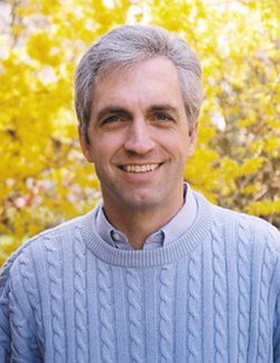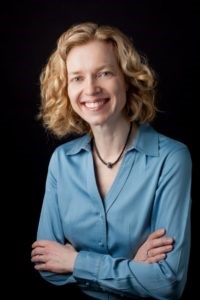克拉克大学《发展心理学》全英课程项目招生公告
世界顶级发展心理学家Arnett教授带您一起学习《Culture and Human Development from Birth through Old Age》
为了培养学生的国际化视野,提高学生学术英语的综合技能,深圳大学心理学院为本科生和研究生提供了发展心理学全英课程项目。该项目旨在丰富学生对国外心理学课程的了解,提高学生心理学的专业水平,从而帮助学生拓展国际视野,提高学术英语能力,更有效地参与国际学术交流活动和发表国际期刊论文。该项目现正式面向心理学本科生和研究生开放报名。
项目介绍
《Culture and Human Development from Birth through Old Age》是一门为期12周的全英短课,课程内容包括:
l 学习人类发展领域的基本术语和概念
l 了解该领域一些最重要的研究人员和理论家的工作
l 将关于人类发展的理论和研究应用到你的生活中,加深你对自己发展的理解
l 学习如何批判性地思考社会科学研究,并分析你所读到的研究的可信度
l 学会将文化方法应用于人类发展的理论和研究以及生活和学习的其他领域
项目由美国克拉克大学教授,顶级发展心理学家Jeffrey Jensen Arnett和美国克拉克大学高级研究员,校级教学奖获得者Lene Arnett Jensen共同授课。


Jeffrey Jensen Arnett & Lene Arnett Jensen (Jeffrey和Lene的个人简历见附件1和附件2;附件3为课程大纲)
项目内容
项目包含每周阅读、课上写作、文献分析与总结等内容。项目以线上方式进行,总共36个直播课时,每周安排一次授课,课程安排如下:
Week 1
Course Introduction and Chapter 1: A Cultural Approach to Human Development
Week 2
Chapter 2: Genetics and Prenatal Development
Week 3
Chapter 3: Birth and the Newborn Child
Week 4
Chapter 4: Infancy
Week 5
Chapter 5: Toddlerhood
Week 6
Chapter 6: Early Childhood
Week 7
Chapter 7: Middle Childhood
Week 8
Chapter 8: Adolescence
Week 9
Chapter 9: Emerging Adulthood
Week 10
Chapter 10: Young Adulthood
Week 11
Chapter 11: Middle Adulthood
Week 12
Chapter 12: Late Adulthood and Chapter 13: Death and Afterlife Beliefs
项目费用及奖学金
项目费用总额为人民币6700元(包括学费、项目设计与管理费)。为鼓励优秀学生积极参与该项目,提高本科生和研究生的科研写作能力,深圳大学心理学院以全额奖学金的方式发放给正式参与项目的学生,学生无需自行承担课程费用。
报名与申请
项目期限 |
12周 |
项目名额 |
15名 |
报名条件 |
1. 深圳大学心理学院在读本科生和研究生 2. 语言要求:雅思6.5分/托福90分以上的水平(优先考虑),大学英语六级500分以上,大学英语四级540分以上(四级仅限19级、20级本科生),专业英语四级/八级合格,Oxford在线测试达到B2以上级别。 |
报名时间 |
9月22日-10月18日 |
报名地点 |
深圳大学沧海校区致理楼L3-1306 |
报名材料 |
1. 托福/雅思成绩单、大学英语四级/六级成绩单、专业英语四级/八级证书(交扫描电子版,复印件,验原件) 2. 个人简历 3. 全英文个人陈述(800字以上): 1)介绍自己; 2)报名本项目的动机; 3)您对参与本项目的期望是什么? 报名材料电子版打包后以“姓名-年级-学号”命名后发送到jrh_psy@szu.edu.cn 纸质版材料送至致理楼L3 1306 江老师处 |
录取标准 |
在符合报名条件的学生中,首先按提交雅思/托福/CET四六级/TEM四八级成绩,结合个人陈述分配录取比例;如果符合要求的报名人数多于项目设定名额则组织英语能力面试,按面试成绩排名先后顺序录取。 |
联系人 |
江老师0755-26533974/15112598739 |
附件1:
Jeffrey Jensen Arnett Biography
Jeffrey Jensen Arnett is the leading authority in the world on the age period 18-29 that he has named “emerging adulthood.” Since Dr. Arnett proposed this term in an acclaimed article in the American Psychologist in 2000 it has become widely used in diverse fields, including psychology, sociology, anthropology, medicine, and education. His book Emerging Adulthood: The Winding Road from the Late Teens Through the Twenties, published in 2004 by Oxford University Press, has been described as “informative, insightful, and infectious” by the Washington Post. A second edition of the book appeared in 2015. His book (with Elizabeth Fishel) for parents of emerging adults, Getting to 30: A Parents Guide to the Twentysomething Years, was published in 2014.
Dr. Arnett has also written many influential theoretical and research articles (Google scholar citations:65307, i10-index:157) on adolescence, on topics including adolescents’ uses of media and risky behavior such as substance use and crime. Recently he has turned his attention to the full span of adult development. In 2020 he served as the Editor of a special issue of American Psychologist, widely regarded as the top journal in psychology, on Rethinking Adult Development: New Ideas for New Times.
A renowned speaker, Dr. Arnett has appeared before diverse audiences all over the United States and the world. In the United States, he has given invited or keynote speeches before college and university audiences including at Harvard Medical School, Princeton Theological Seminary, Boston College, the University of Michigan, New York University, University of Notre Dame, and the University of Illinois, among many others. Internationally, he has been an invited speaker in Australia, Belgium, Chile, China, Finland, Iceland, Ireland, Israel, Norway, Portugal, Sweden, and Turkey. He has also given many invited speeches before business leaders, religious leaders, and parents groups.
Dr. Arnett is currently a Senior Research Scholar in the Department of Psychology at Clark University in Worcester, Massachusetts. He has also taught at the University of Missouri. During 2005 he was a Fulbright Scholar at the University of Copenhagen, Denmark. He is author of the most widely-used textbook on adolescent development, Adolescence and Emerging Adulthood: A Cultural Approach (2016, Prentice Hall, 6th Edition) as well as (with Lene Jensen) three other textbooks. For more information, see www.jeffreyarnett.com.
附件2:
Biography: Lene Arnett Jensen
Lene Arnett Jensen is a Senior Research Scientist at Clark University in Worcester, Massachusetts, USA. She received her Ph.D. from the Committee on Comparative Human Development at the University of Chicago, and did a year of postdoctoral work in the Department of Sociology at the University of California, Berkeley. In 2005-06, she was a Research Fellow with the Academy for Migration Studies in Denmark. She joined the Department of Psychology at Clark University in 2006. In 2010-11, she held the Nehru Distinguished Chair at the Maharaja Sayajirao University of Baroda in India. In recent years, she has been a Visiting Scholar at Stanford University (2016-17), the University of Bordeaux, France (2017-18), and Tufts University (currently).
The aim of Dr. Jensen’s scholarship and professional collaborations is to move research on human development toward a focus on both what is universal and what is cultural. She is the originator of the “cultural-developmental” theoretical approach to research on human psychology. Unlike one-size-fits-all psychological theories of the 20th century, the cultural-developmental approach provides a flexible and dynamic way to think about psychological development in today’s global world. In Dr. Jensen’s book, Moral Development in a Global World: Research from a Cultural-Developmental Perspective, she argues that humans are born with a shared moral heritage and that, as we develop from childhood into adulthood, we branch off in diverse directions shaped by culture. This results in both novelty and contention (Cambridge University Press, 2015).
Dr. Jensen’s other books include The Oxford Handbook of Human Development and Culture: An Interdisciplinary Perspective, which provides an overview of theory and research on human development, with more than 40 chapters drawing together findings from cultures around the world (Oxford University Press, 2016). In The Oxford Handbook of Moral Development: An Interdisciplinary Perspective, edited by Dr. Jensen, more than 90 leading authors deliver an international, up-to-date, and comprehensive tour of the field (Oxford University Press, 2020). Dr. Jensen also authors college textbooks on child and lifespan development together with Jeffrey Jensen Arnett. Her most recent textbooks are Child Development: A Cultural Approach, 3e (Pearson, 2020), Human Development: A Cultural Approach, 3e (Pearson, 2019) and Child Development Worldwide: A Cultural Approach, 1e (Pearson, 2018).
Dr. Jensen and her colleagues have conducted research with diverse religious, ethnic, and socio-economic groups in countries such as Denmark, India, Thailand, Turkey, and the United States. Her current research projects address moral development and cultural identity formation.
From 2004 to 2015, Dr. Jensen was Editor-in-Chief of New Directions for Child and Adolescent Development. She chaired the 2012 Biennial Meeting of the Society for Research on Adolescence in Vancouver, Canada. Currently, she is on the editorial board of Applied Developmental Science and Journal of Adolescent Research.
A native of Denmark, Dr. Jensen has also resided in Belgium, France, and India. She speaks Danish, English and French. She lives in Massachusetts, USA.
For more information: www.LeneArnettJensen.com
附件3
Culture and Human Development from Birth through Old Age
Instructors: Dr. Jeffrey Jensen Arnett and Dr. Lene Jensen
email: arnett@jeffreyarnett.com and ljensen@clarku.edu
Texts
Arnett, J.J., & Jensen, L.J. (2018). Human Development: A Cultural Approach (3rd edition). New York: Pearson.
Course Objectives
1. Learn the basic terms and ideas in the field of human development.
2. Learn about the work of some of the most important researchers & theorists in the field.
3. Apply theories and research on human development to your life, in a way that deepens your understanding of your own development.
4. Learn how to think critically about social science research, and analyze the credibility of studies you read about.
5. Learn to apply the cultural approach to theories and research on human development, as well as to other areas of life and learning.
Class Format
In addition to discussing the content of each textbook chapter, we will engage in a variety of active learning activities in each class, including weekly reading observations, in-class writing assignments, and watching and discussing videos and other material from textbook.
Weekly Reading Observations
For each of the 13 chapters of the book, you will be required to come to class with a 200-word written assignment, your Weekly Reading Observations (WROs). These can be questions, discussions of parts of the chapter you found confusing, connections to other materials you have read, or connections to personal experience. It should NOT be a summary of the chapter content. The WROs will form the basis for our discussion of the chapter materials each week, so always be prepared to share and explain your WROs.
In-Class Writings
Now and then you will be asked to write a brief essay during class in response to a topic we have been discussing. The essays will be no more than 150 words.
Article Summary and Analysis
In the course of the semester 2 research articles will be provided for you to read, in order for you to learn more about how research is conducted and presented. For each one, you will write a 2-page paper, of which 1 page should be summary and 1 page analysis. Label the two sections clearly as “Summary” and “Analysis.”
More specifically, the papers should include the following information:
1 page summary. What theoretical ideas or research questions inspired the study? What methods were used to investigate the topic? What were the most notable results? What implications do the results have for real life or for future research?
1 page analysis. What were the main strengths of the article? What did you think the authors did especially well in describing or analyzing their results? What were the main weaknesses of the article? What were the limitations or errors in the methods used? What interpretations did the authors make that you think are in error or unjustified or overstated? What was most important and memorable about the study?
Grading
Grading will be discussed at the beginning of the semester.
Class Schedule
Each week there will be 2 classes, and each class will be 1 ½ hours long. For each topic, the assigned reading is the textbook chapter in Human Development: A Cultural Approach.
Week 1
Course Introduction and Chapter 1: A Cultural Approach to Human Development
Week 2
Chapter 2: Genetics and Prenatal Development
Week 3
Chapter 3: Birth and the Newborn Child
Week 4
Chapter 4: Infancy
Week 5
Chapter 5: Toddlerhood
Week 6
Chapter 6: Early Childhood
Week 7
Chapter 7: Middle Childhood
Week 8
Chapter 8: Adolescence
Week 9
Chapter 9: Emerging Adulthood
Week 10
Chapter 10: Young Adulthood
Week 11
Chapter 11: Middle Adulthood
Week 12
Chapter 12: Late Adulthood: and Chapter 13, Death and Afterlife Beliefs